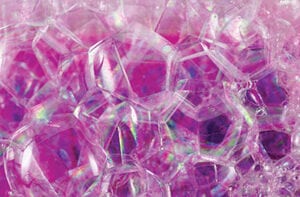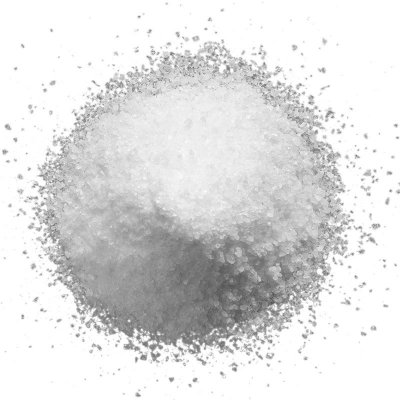The Importance of Defoamers in Industrial Processes and Applications
The Importance of Defoamers in Industrial Processes and Applications
Blog Article
Discover the Top Advantages of Utilizing Defoamers in Industrial Processes
The use of defoamers in commercial processes provides a variety of engaging benefits that can enhance operational effectiveness and item quality. By efficiently managing foam manufacturing, these representatives not just maximize material flow however additionally add to significant cost reductions and enhanced sustainability. The ramifications of embracing defoamers might be a lot more extensive than originally regarded.
Enhanced Process Efficiency
Optimizing industrial processes frequently involves dealing with lathering problems, which can impede operational efficiency. Foam formation can interfere with the proper functioning of equipment, reduce the effective utilization of resources, and make complex the surveillance of essential criteria. By applying defoamers, sectors can properly alleviate these problems, resulting in streamlined operations and boosted efficiency.
Defoamers work by destabilizing the foam structure, permitting fast collapse and significant reduction in foam quantity. This activity not only boosts the circulation of materials through tools, such as mixers, pipelines, and activators, yet likewise reduces interruptions brought on by foam overflow. As a result, equipment downtime is reduced, enabling a much more effective and continual manufacturing process.
Furthermore, the usage of defoamers can cause reduced power consumption. With much less foam to manage, compressors and pumps can operate extra effectively, causing lower functional costs and a general improvement in process throughput. Inevitably, the calculated usage of defoamers not only addresses prompt foaming obstacles but likewise adds to a more reliable industrial environment, cultivating a competitive benefit in a requiring market.
Improved Product High Quality
The assimilation of defoamers in industrial processes plays an essential function in boosting product high quality. By properly controlling foam formation, defoamers add to the consistency and uniformity of end products. Too much foam can lead to aeration, which adversely influences the structure and security of solutions, specifically in industries such as food and finishes, drugs, and drinks.

Moreover, defoamers promote much better mixing and diffusion of components, leading to homogeneity in solutions. This is necessary in applications where accurate active ingredient proportions are important for performance and security. Additionally, the removal of foam can minimize the risk of contamination throughout production, more protecting item integrity.
Inevitably, by improving item quality, defoamers not just enhance customer satisfaction yet also strengthen brand name credibility. Their duty in maintaining high-grade requirements emphasizes their significance in contemporary commercial processes.
Expense Decrease Benefits
Carrying out defoamers in commercial processes can cause substantial cost reduction advantages. By properly controlling foam formation, defoamers lessen item loss during manufacturing, consequently maximizing product usage. This reduction in waste equates straight right into lower basic material expenses, improving total functional performance.
Moreover, making use of defoamers can reduce power intake. Too much foam can prevent equipment performance, resulting in enhanced energy demands to preserve manufacturing degrees. By minimizing foam, defoamers promote smoother procedures, permitting machinery to run more efficiently and decreasing energy expenditures.

In addition, defoamers can reduce handling times. Foam can produce additional challenges that prolong manufacturing cycles. By making use you could check here of defoamers, sectors can enhance their processes, resulting in faster turnaround times and improved throughput. This performance not just speeds up production yet additionally enables business to meet market needs a lot more quickly.

Environmental Influence Mitigation
In industrial processes, using defoamers plays a crucial role in mitigating ecological influences linked with foam generation. Foam can lead to considerable functional inadequacies, causing increased discharges and waste generation. By successfully regulating foam, defoamers aid keep process efficiency, thus minimizing the general ecological impact of procedures.
In addition, too much foam can overflow control systems, bring about spills that might pollute soil and water resources. Defoamers assist minimize this threat by guaranteeing that lathering does not exceed prescribed limits, promoting compliance with ecological regulations. This proactive approach not only safeguards environments yet also enhances the sustainability of industrial techniques.
Furthermore, using defoamers can decrease energy consumption in different processes. defoamers. Minimizing foam formation decreases the requirement for added energy-intensive measures, such as enhanced frustration or pumping, which may or else be required to take care of foam. Subsequently, the fostering of defoamers aligns with wider sustainability goals by Read More Here promoting energy performance while lessening the carbon impact of commercial tasks.
Inevitably, integrating defoamers right into industrial operations is a strategic step that supports ecological stewardship and responsible source administration.
Adaptability Throughout Industries
Across numerous markets, defoamers demonstrate remarkable convenience, adapting to the particular needs of varied applications. In the food and drink industry, as an example, defoamers are important to maintaining product high quality by stopping foam development during handling, which can impact texture and flavor. In the pharmaceutical industry, defoamers make certain the security of solutions, improving product effectiveness and uniformity.
In the chemical production realm, defoamers assist in smoother procedures by decreasing foam in response vessels, hence improving return and decreasing downtime. The paper and pulp sector relies upon defoamers to improve the efficiency of pulp handling and paper manufacturing, ensuring ideal item integrity. In addition, in wastewater treatment facilities, defoamers play a vital duty in managing foam throughout aeration processes, leading to improved therapy results.
The adaptability of defoamers encompasses the oil and gas sector, where they help in handling foam in boring fluids and production procedures. By tailoring formulas to satisfy details industry more helpful hints requirements, defoamers work as vital devices that enhance operational performance, item quality, and general procedure effectiveness across a multitude of sectors. Their versatility underscores their value in modern commercial applications.
Verdict
In verdict, the utilization of defoamers in commercial procedures presents various benefits, consisting of improved efficiency, improved item high quality, considerable expense reductions, and favorable ecological influences. The combination of defoamers stands for a tactical technique to attending to challenges connected with foam management in different manufacturing atmospheres.
Ultimately, the strategic use of defoamers not only addresses instant foaming challenges but additionally adds to a much more efficient commercial community, promoting a competitive advantage in a demanding market.
In commercial procedures, the usage of defoamers plays an essential duty in mitigating ecological impacts associated with foam generation. By effectively regulating foam, defoamers assist maintain process effectiveness, consequently reducing the general environmental footprint of procedures.
In addition, in wastewater therapy facilities, defoamers play a vital function in managing foam during aeration procedures, leading to better treatment outcomes.

Report this page